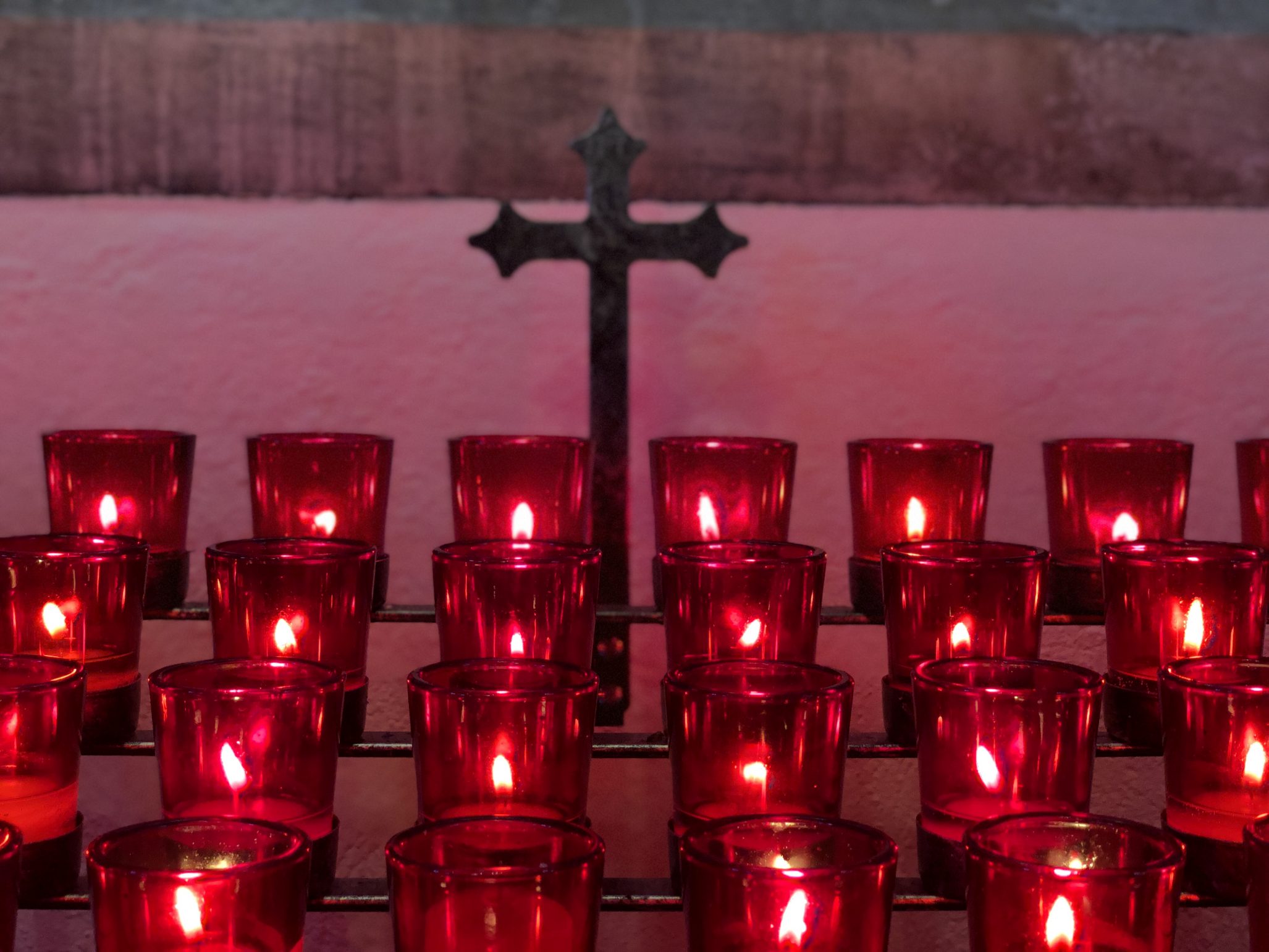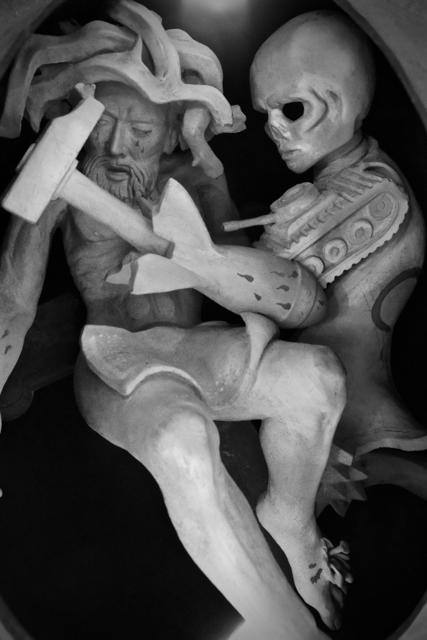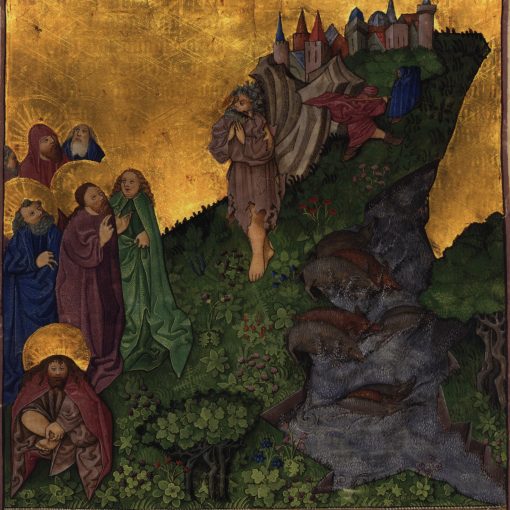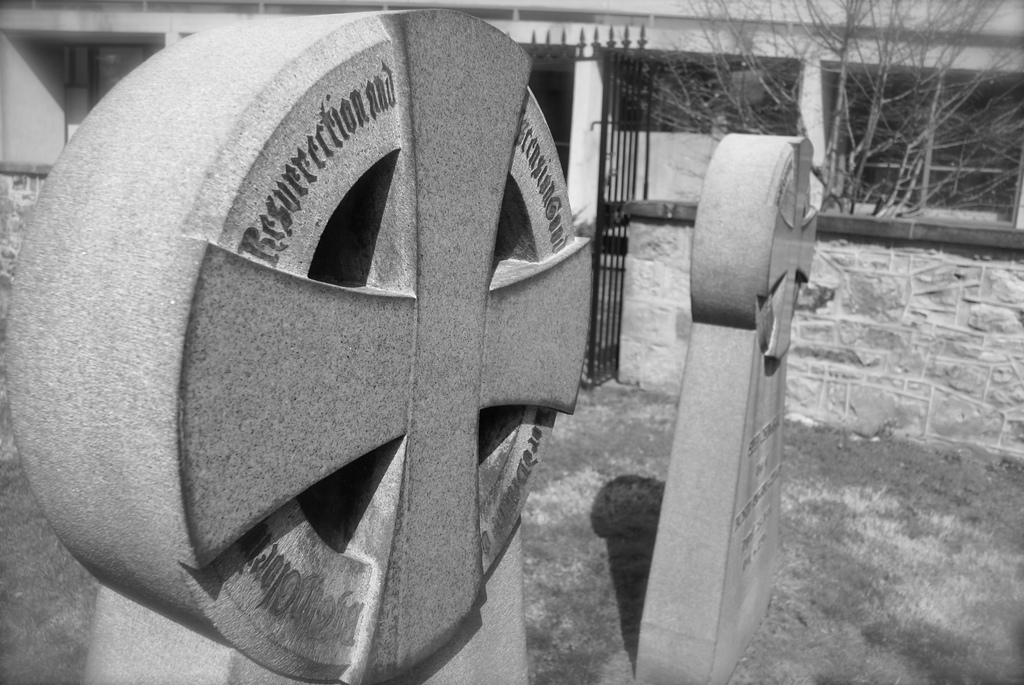Pentecost – Whitsunday 2019

Good Shepherd, LEX
Year C
RCL
Audio @GoodShepherdLEX
- Acts 2:1-21
- Psalm 104:24-35, 37
- Romans 8:14-17
- John 14:8-17, (25-27)
“Suddenly from heaven there came a sound like the rush of a violent wind, and it filled the entire house where they were sitting. Divided tongues, as of fire, appeared among them, and a tongue rested on each of them. All of them were filled with the Holy Spirit and began to speak in other languages, as the Spirit gave them ability.” Amen.
This morning we have heard this passage from Acts read in the several languages of our congregation, an audible reminder of the diversity of talents in our midst, but more importantly of the power of the Spirit of God, sending us out into the world so that, “everyone who calls on the name of the Lord shall be saved.” The Holy Spirit appeared over the disciples looking like a flame, a tongue of fire above their heads. This is the day we celebrate as “Pentecost.”
This Greek word means “50th” and refers to the Jewish festival of Weeks, in Hebrew it is Shavuot, which was the 7 weeks (7×7) after the offering of the first-fruits at the time of Passover (Lev. 23:9-14). Jewish tradition also holds that it was the day on which God gave Israel the Law on Mount Sinai. When God appeared to Moses and Israel, just as with the disciples, he did so with fire and flame, clouds and lightening. First God appeared to Moses in the bush that “was blazing, yet it was not consumed” and then, before all Israel as Moses ascended the mountain, God descended upon Mount Sinai in fire and smoke (Ex. 19:18).
This year the Jewish and Christian calendars once again coincide as Shavuot is celebrated today and tomorrow in synagogues around the world. It is, in fact, one of the Shalosh Regalim, the Three Pilgrimage Festivals for ancient Jews, so on this day two millennia ago Jerusalem was crowded with Jews from every nation on earth, from every region, as they celebrated God’s great gift of the Law.
As they gathered, the disciples were remembering that event fifty days earlier, that Passover when Jesus went to Jerusalem and offered up his life for the sins of the world. Since that “beautiful scandalous night,” he had died, risen from the dead, and appeared to the disciples. Now, after ascending to heaven, on the Feast of Shavuot, the anniversary of the giving of the “Blessed Burden of the Law,” God’s spirit descended upon the disciples as a tongue of fire and they were filled with the Holy Spirit. This is the anointing of God’s people, the fulfillment of the Law and the prophets. Jesus’ earthly ministry had ended and now God, Father, Son, and Holy Spirit, has empowered us so that our earthly ministry might begin, taking the Gospel message to all the world.
The image of fire and flame is powerful and striking. We light a flame to illuminate dark places, to serve as beacons in the night, drawing us to safety, and to remember those who have died. But it is dangerous. It consumes as it illuminates and cannot be easily controlled. One of my favorite authors is Frederick Buechner. In his collection of ABCs Beyond Words, he makes this observation about “fire.”
Fire has no shape or substance. You can’t taste it or smell it or hear it. You can’t touch it except at great risk. You can’t weigh it or measure it or examine it with instruments. You can never grasp it in its fullness because it never stands still. Yet there is no mistaking its extraordinary power.
Frederick Buechner, Beyond Words
Is it any wonder that this is the image that we have again and again for the God who is both transcendent and immanent; our God who is both the divine creator, uncontainable by this cosmos, and yet willing to come and live as one of us in his Son, Jesus Christ?
God the Spirit is the fire that dances within us and consumes us and cannot be contained. It is fire that purifies, refines, and sanctifies.
The notion of “spirit,” on the other hand, Buechner suggests has become vacuous.
The word Spirit has come to mean something pale and shapeless, like an unmade bed. School spirit, the American spirit, the Christmas spirit, the spirit of ’76, the Holy Spirit—each of these points to something that you know is supposed to get you to your feet cheering, but that you somehow can’t rise to. The adjective spiritual has become downright offensive. If somebody recommends a person as spiritual you tend to avoid that person, and usually with good reason. Inspiring is even worse. Inspirational is worse still. Inspirational books are almost invariably for the birds.
Frederick Buechner, Beyond Words
This is what Buechner has written in, it should noted, an “inspirational” book. He is right again, of course. What does “spirit” mean to us today? It conjures up images of Ghost Hunters on cable TV or the crowd-led fever of “team spirit,” known all too well to every college town across the nation. In our great Commonwealth the term might more often be used to refer to a certain class beverages.
In Hebrew (רוּחַ), Greek (πνεῦμα), and even Latin (spiritus) the word “spirit” comes from the same root as “breath.” Spirit is, in other words, the very substance of our lives. Without breath, we have no life. In the beginning the Spirit, the Breath, of God hovered over the face of the deep and God “breathed into human nostrils the breath of life; and humanity became a living being.”
So it is that throughout the Old Testament that God appeared to his people in fire and his Spirit inspired the prophets, like Joel. But now, from that first Pentecost after the Ascension of Jesus to today, God is sending his spirit upon all his people, not just a select few, but all Christians are to be inspired, Spirit-filled. As Peter quoted the prophet Joel:
In the last days it will be, God declares,
that I will pour out my Spirit upon all flesh,
and your sons and your daughters shall prophesy,
and your young men shall see visions,
and your old men shall dream dreams.Even upon my slaves, both men and women,
in those days I will pour out my Spirit;
and they shall prophesy.Then everyone who calls on the name of the Lord shall be saved.
Joel 2:28-29, 32
This is the birth of the Church, the pouring out of the Holy Spirit upon the congregation, the gathering, of God’s people, those who worship and declare Jesus as the Messiah, the Anointed One through whom God has redeemed all the world. “Then everyone who calls on the name of the Lord shall be saved.” It is not the speaking in tongues that is the sure sign of the presence of the Holy Spirit, but rather that we are doing the work of Jesus, “If you love me, you will keep my commandments.”
And two of his final commandments: “Love one another as I have loved you” and “Go and make disciples of all nations.”
In my two years here in Lexington and at Good Shepherd, I have learned about the history of the Holy Spirit’s work in this parish and diocese. There was of course the great revival of the early 19th century that began in Kentucky, but I am thinking more about when priests and parishioners alike have gone into hospitals and homes to bring prayer, comfort, the Eucharist, and healing. I am thinking of how the Spirit has been at work through the “Church Under the Bridge,” Mission Lexington, BackPack Ministry, St. Augustine’s Chapel, and the Room in the Inn. I am thinking especially about all the work that I know nothing about, the work in your lives, in your homes, offices, and schools. I am thinking about the past, the present, and the future.
The Spirit of God is always at work.
The fire of the Holy Spirit came to rest as tongues of flame “on each one of them.” The Spirit of God rests now upon us. Upon each and every one of us. Giving each of us, according to our gifts and abilities, the power to do God’s will and ministry in this world.
The fire of the Holy Spirit rests upon you today so that you too can continue that ministry begun by Jesus himself. In his first letter to the Corinthians, Paul wrote to a church as complex and diverse as our own and encouraged them all to recognize the gifts that God had given.
To each [of you] is given the manifestation of the Spirit for the common good. To one is given through the Spirit the utterance of wisdom, and to another the utterance of knowledge according to the same Spirit, to another faith by the same Spirit, to another gifts of healing by the one Spirit, to another the working of miracles, to another prophecy, to another the discernment of spirits, to another various kinds of tongues, to another the interpretation of tongues. All these are activated by one and the same Spirit, who allots to each one individually just as the Spirit chooses.
1 Cor. 12:7-11
So, you may not be called to preach, you may not speak in tongues, but you are all called by God to serve as led by the Spirit. Do you believe in God the Father, God the Son, God the Holy Spirit? Do you believe that Jesus died, rose on the third day, and ascended into heaven? Do you believe that he sent his Spirit to comfort, heal, inspire, and move us? Because God believes in you and God is at work in your life.
Allow the Holy Spirit into your life, allow his flame to burn through you, allow the Spirit’s healing and renewal to grow within you, and from you will flow the deeds of God. And be at peace, for the Spirit of Truth is at work within you and abides with you.
When Jesus’ earthly ministry ended, ours began, as he gave us the great Advocate and Comforter, the Holy Fire to do his work in this world. It is daunting work, it will never end, but we are not alone, he remains with us and promises us:
“Peace I leave with you; my peace I give to you. I do not give to you as the world gives. Do not let your hearts be troubled, and do not let them be afraid.”
Amen. ✠





